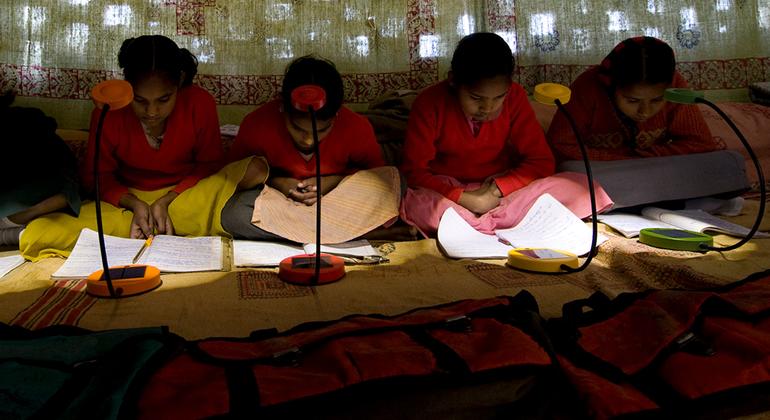Currently, 733 million people worldwide still do not have access to electricity, and 2.4 billion people still cook using fuels detrimental to their health and the environment.
At the current rate of progress, 670 million people will remain without electricity by 2030 – 10 million more than projected last year.
The findings are from the 2022 edition of Tracking SDG 7: The Energy Progress Report, which monitors global efforts to achieve the Sustainable Development Goal (SDG7) of ensuring affordable modern energy supply for everyone by 2030.
Step up financing
The study was produced by UN entities and partners, known as the SDG7 custodian agencies, who urge governments and policymakers to step up action.
“International public financing for renewable energy needs to accelerate, especially in the poorest, most vulnerable countries. We have failed to support those most in need,” said Francesco La Camera, Director-General of the International Renewable Energy Agency (IRENA), one of the partners.
“With only eight years left to achieve universal access to affordable and sustainable energy, we need radical actions to accelerate the increase of international public financial flows and distribute them in a more equitable manner, so 733 million people who are currently left behind can enjoy the benefits of clean energy access.”
Vulnerable countries affected
COVID-19 impacts such as lockdowns, supply chain disruptions, and diversion of fiscal resources to keep food and fuel prices affordable, have affected progress towards achieving SDG 7.
The world’s most vulnerable countries have been particularly affected. Nearly 90 million people in Asia and Africa, who previously gained access to electricity, can no longer afford to pay for their basic energy needs.
The Russian invasion of Ukraine has compounded the situation, as it has led to uncertainty in global oil and gas markets, as well as soaring energy prices.
The report said Africa remains the least electrified in the world, with 568 million people without access. Sub-Saharan Africa’s share of the global population without electricity rose from 71 per cent in 2018 to 77 per cent in 2020, while most other regions saw declines.
Progress and setbacks
Furthermore, although 70 million people globally gained access to clean cooking fuels and technologies, this progress was not enough to keep pace with population growth, particularly in Sub-Saharan Africa.
The report found that despite continued disruptions in economic activity and supply chains, renewable energy was the only energy source to grow through the pandemic.
Yet, many countries most in need of electricity have been left behind – a situation that was further aggravated by a decrease in international financial flows for a second consecutive year.
SDG7 also includes targets towards energy efficiency. From 2010 to 2019, global annual improvements in energy intensity averaged around 1.9 percent, which is well below the levels needed to both meet the targets and to make up for lost ground.
Call for commitment
The SDG7 custodians are IRENA and the International Energy Agency (IEA), the United Nations Statistics Division (UNSD), the World Bank, and the World Health Organization (WHO).
They recalled that the UN High-Level Dialogue on Energy, held last September, brought together governments and stakeholders to accelerate action to achieve a sustainable energy future that leaves no one behind.
The partners urged the international community and policymakers to safeguard gains toward SDG 7, and to remain committed to continued action towards affordable, reliable, sustainable, and modern energy for all. They must also maintain focus on countries needing the most support.
For people and planet
Dr. Maria Neira of the World Health Organization (WHO) emphasized why access to clean cooking is critical.
She said millions of people are killed through heart disease, stroke, cancer, and pneumonia because they still rely on dirty cooking fuels and technologies which are major sources of air pollution.
“Women and children are particularly at risk – they spend the most time in and around the home and therefore carry the heaviest burden to their health and well-being,” said Dr. Neira, Director of WHO’s Department of Environment, Climate Change and Health.
“Transitioning to clean and sustainable energy will not only contribute to make people healthier, it will also protect our planet and mitigate the impacts of climate change,” she added.



